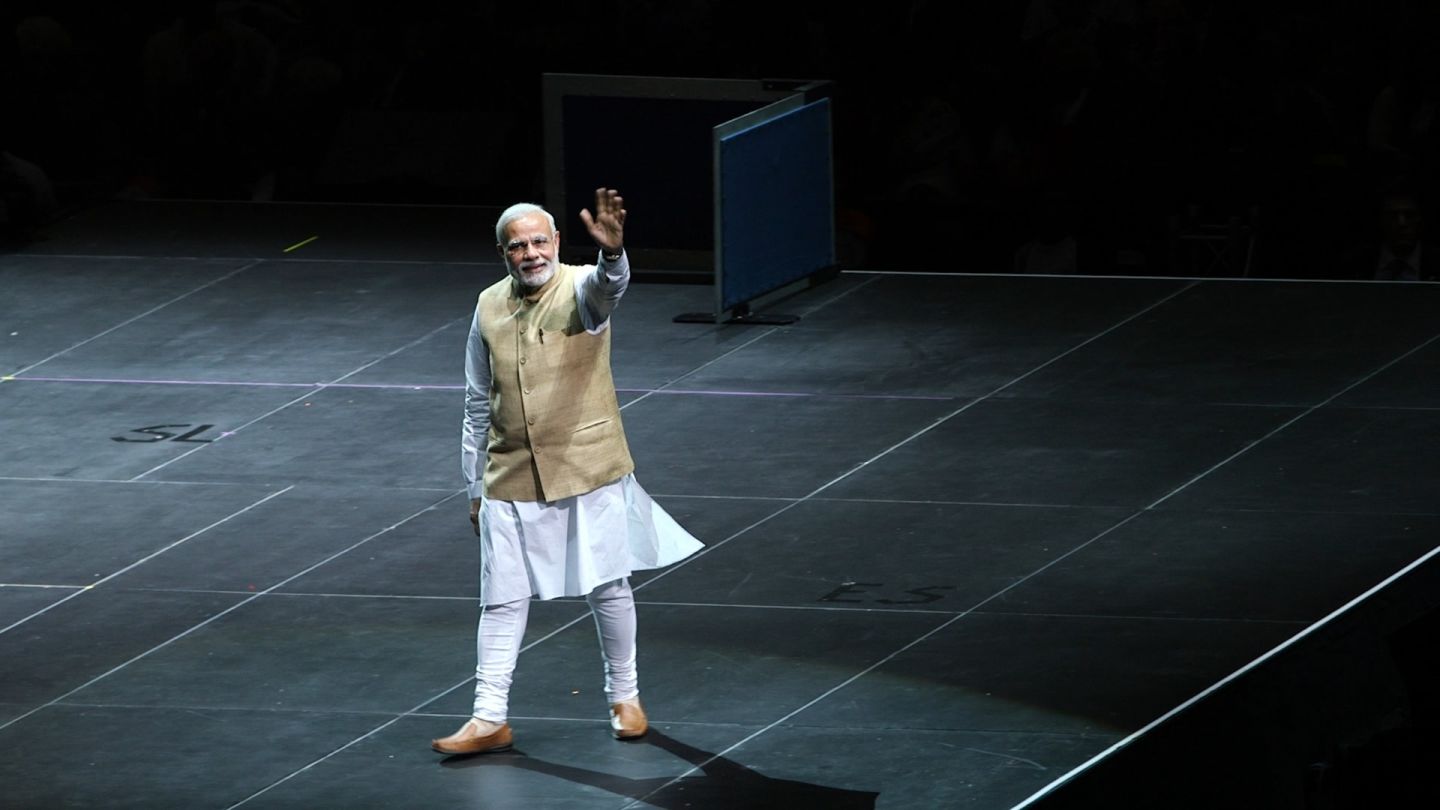India's digital-driven Prime Minister Narendra Modi connected with Silicon Valley's Indian-American community in a big way Sunday, as he continues to rehabilitate his own reputation in this country after being banned for nine years.
At San Jose's SAP Center, he drew close to 18,000 people -- mostly Indian-Americans. The audience included House Democratic leader Nancy Pelosi and a host of congressional members, including Mike Honda, John Garamendi, Ami Bera, Tulsi Gabbard, Jerry McNerney, Loretta Sanchez and Eric Swalwell. Earlier in the day, Modi discussed climate change with Gov. Jerry Brown at the Fairmont Hotel, held a town hall meeting at Facebook with CEO Mark Zuckerberg and visited Google.

Modi's visit to California was the first for an Indian prime minister in 33 years. The United States denied Modi a visa in 2005 over allegations that he failed to intervene to stop Hindus from killing hundreds of Muslims in Gujarat state, where he was chief minister. He was eventually cleared of complicity by India's Supreme Court.
Modi told the cheering crowd in San Jose that he doesn't see their exodus as a brain drain but as a "brain deposit." Many engineers and other educated Indians flocked to Silicon Valley in the 1980s, because they felt that innovation was stifled by political and social forces in India. Modi said their success and the magic of their fingers in Silicon Valley forced the world to change the way it looks at India.
"India's brain drain came to be brain gain," said Modi, 64, speaking in Hindi with English subtitles on a jumbo screen.